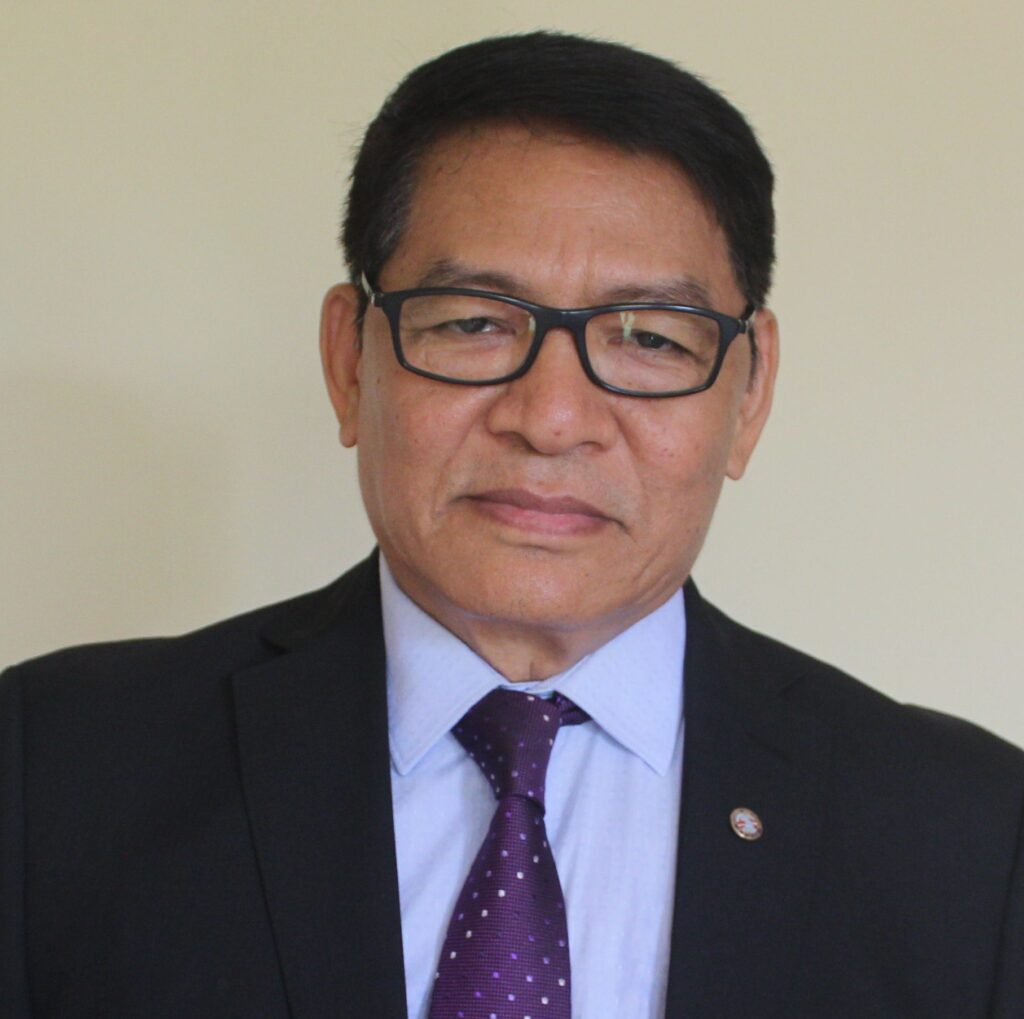(Manipur’s experience with AFSPA by John Shilshi IPS Retd, Rs 499/- Pgs 328 Hard Cover, published by White Falcon Publishing)

Exactly eighty years after Hiroshima and Nagasaki, atom bombs are again in the news. Rahul Gandhi has claimed to have dropped an atom bomb on the Election Commission of India through his allegations of vote chori (theft). Whether it is an atom bomb or a damp squib, time alone will tell.
But John Shilshi has indeed dropped an atom bomb about, not on, Manipur, his home State. He is a senior retired IPS officer of the Manipur cadre who, as the jacket cover of his book describes, has served in the Intelligence Bureau, Ministry of External Affairs, and the National Security Council. A highly decorated officer, he is the recipient of three gallantry medals, a Meritorious Service Medal, Distinguished Service Medal and even a Commendation from the Chief of Army Staff. With such impeccable credentials, anything that he writes merits serious attention.
By virtue of being a senior bureaucrat who was in the thick of the action, as also being a Naga tribal of Manipur, he has seen the picture from both sides of the fence.
This book is not an accusation, nor washing dirty linen in public, it has been written with sensitivity, but without compromising on the truth. The book that has been dedicated to his three grandchildren has this to say, “May they grow to sympathise (sic) sufferings, denounce violence and hatred and learn to love”. This is a lesson that all of us need to learn.
In his Preface, Shilshi writes that “the Armed Forces (Special Powers) Act 1958 has undoubtedly been one of the most contentious legislations in Independent India’s history”. Tragically, the sweeping provisions of this Act have been often abused or read in isolation. Sections 4 & 6 of the Act provide “powers to the armed forces to search, arrest and kill where necessary” while protecting such forces from prosecution. If this is not draconian, what is? “This law served as a convenient tool to target communities that had insurgents in their midst. Civilians suffered and got killed as if life had no value”.
To illustrate his point Shilshi delved deep into some unfortunate incidents between 1970 and 2004, with copious references and documentation. I will briefly touch on two such incidents.
On 10th March 1982 C. Daniel and C. Paul were arrested by the army led by a Subedar while they were attending a Sunday church service. Five days later when their wives went to the Phungrei camp of the 21st Sikh Regiment they were told that the captured men were not there. That was the last that anybody saw of them, despite a petition filed in the Supreme Court.
Almost to the day a similar incident occurred on 14th March 1984, when a volleyball match was being played, ironically, between the Manipur Rifles and the BSF teams. Some uniformed and armed CRPF jawans from their camp 200 metres away came to watch the match. Some insurgents in the crowd killed one CRPF jawan and wounded three others.
All hell broke loose. The CRPF went berserk killing 13 innocent spectators, besides injuring several others. It was selective targeting not random fire, as barring one, all the victims were male.
Subsequent enquiries revealed that the CRPF was not on duty, nor had the civil authorities/ police requisitioned their services. Though a judicial enquiry commission indicted certain personnel of the 55th Battalion of the CRPF, nobody was convicted for manslaughter. That is why Shilshi laments that decades of misuse of the AFSPA has “alienated people, particularly in Manipur”.
In contrast, post the unfortunate incidents of 3rd May 2023 when Manipur went up in flames, there was “not a single incident of firing by the security forces, causing injuries to the civilian population”. The women members of the Meira Paibis blockaded an army convoy that was on duty, but “it tamely surrendered to the women folk”.
Despite this “more civilians have died at the hands of the security forces in comparison to the number of insurgents neutralised during encounters”. Shilshi continues, “Most regrettably, forces harboured a notion of WE and THEY while dealing with the local population and showed scant respect for people’s lives”.
Even Irom Sharmila’s (Iron Lady) record breaking fast demanding repeal of the AFSPA left the Government unmoved. “Despite this, sections of the population still believe that the army or central paramilitary forces offer the best chance for peace”. Perhaps this is because of some outstanding and empathetic officers like Generals V.K. Nayar and K.M. Seth, and Brigadiers Gangadharan and Y.P. Sanyal. May their tribe increase.
One therefore hopes that Shilshi’s atom bomb will awaken the Central Government which was loath to remove its then Chief Minister N. BIren Singh, who fiddled while Manipur burned. This well documented, impartial and rational book could also serve as a handbook for all Central forces posted in Manipur and other “disturbed areas” of the country. If this book doesn’t disturb our conscience, what will?
Eva Peron sang “Don’t cry for me Argentina”. Shishi’s book sings another song “Cry my beloved country for one of your sisters in the North East is stricken with a grievous wound”.

Copies of the book are available at:
1. Publishers: https://store.whitefalconpublishing.com/products/manipur-s-experience-with-afspa-stories-of-violence-impunity-and-insensitivity
2. Amazon: https://www.amazon.in/Manipurs-Experience-AFSPA-Violence-Insensitivity/dp/9349883147
3. Flipkart: https://www.flipkart.com/manipur-s-experience-afspa-stories-violence-impunity-insensitivity/p/itm521ec9fdf0201?
Leave a Reply